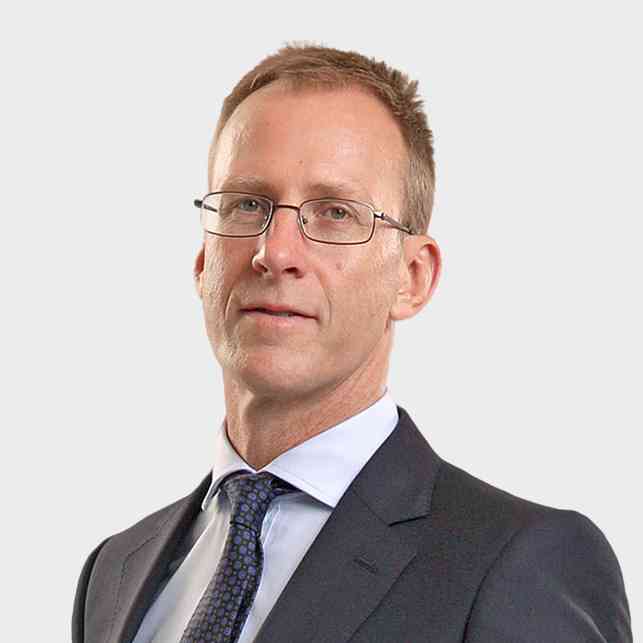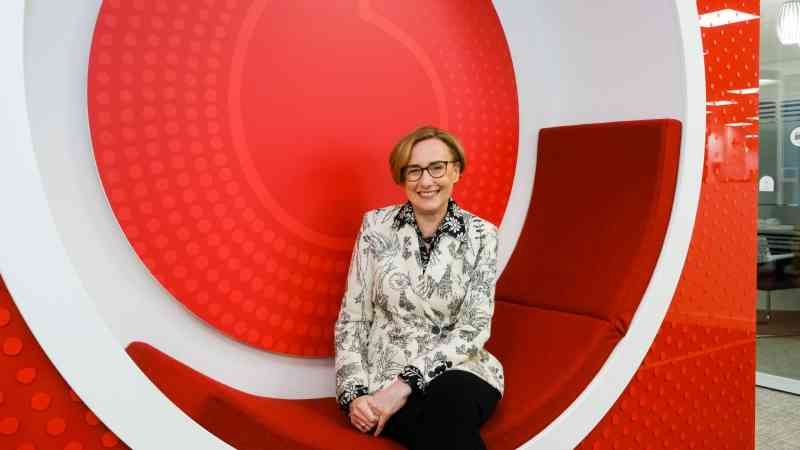Bigger bucks don’t guarantee a star
Today’s UK stock market puzzler: should the High Pay Centre relocate to America? Only this week it popped up to harrumph that the wedge of a FTSE 100 boss had risen to record levels last year: a median £4.19 million.
And, of course, that is a tidy sum, whatever the travails of minding the shop and organising the annual share buyback. But when you hear the fair pay campaigners bang on about “excessive spending on top earners”, you have to wonder if they haven’t missed a more obvious market. Look across the Pond and they’d have a real “wake up and smell the coffee” moment, at least to judge by the latest from Starbucks.
It has just lured a new boss, Brian Niccol, out of burrito land — the Chipotle Mexican Grill — in the hope he can replicate his turnaround magic at the coffee chain. And maybe he’ll prove he really can walk on water, or at least a Honey Almondmilk Flat White. But look what it’s forking out for the privilege: pay of up to $113 million (£88 million) if he hits his targets, including $75 million for giving up his Chipotle shares. To boot, he doesn’t even have to come into the Seattle HQ. He’ll also be toiling from a “small remote office” at his home in Newport Beach, California.
True, one case study doesn’t make a thesis, even if it’s a truism that US bosses get paid more than their FTSE 100 counterparts. On figures from Institutional Shareholder Services, median pay for S&P 500 chiefs was $15.7 million last year: enough for a top-six berth over here behind AstraZeneca’s Sir Pascal Soriot (£16.9 million) and the bosses of Relx, Rolls-Royce, BAE Systems and GSK.
Still, there’s still something instructive about what’s gone on at Starbucks. And not least for those claiming that the answer to a better-performing UK market is to jack up bosses’ bread: a pay-for-talent argument put about by the London Stock Exchange itself, which in April saw off an investor revolt to double the moolah of its boss David Schwimmer to £13.2 million.
The bloke Starbucks booted out after 17 months was a former FTSE 100 boss: Laxman Narasimhan, the ex-Reckitt chief, mainly famous for cleaning up on Covid, taking apart his predecessor’s baby milk buy and bringing in a new “energy pink” logo. He earned £6 million in his last full year at Reckitt but walked out with a month’s notice when Starbucks came calling, dangling a pay packet of up to $28 million.
Despite that welcome, he went down like a cold cappuccino, roasted by the man who built the business, Howard Schultz, as well as activist investors — Elliott and Starboard Value — over falling sales, missed targets and queues of hacked-off customers. Yes, financially, it wasn’t so bad for Narasimhan. Despite his short stint producing a one-quarter drop in the share price, he earned $14.6 million pay last year.
Still, who knows if chucking eight times as much at the home-working Niccol will be the answer, even if he has got off to a flyer. Starbucks’ shares leapt 25 per cent simply on the appointment of the man who, in six years, turned Chipotle from a business giving its customers E. coli to one whose shares rose eight times on his watch. Even so, despite his instant coffee effect, there’s a fair way to go. At $94, the shares are still only back to pre-Covid levels.
Which, broadly, highlights the problem. Maybe there is a case for investors giving UK boards more leeway in paying top dollar, without box-ticking pay revolts — as long non-execs face the consequences for bad hires. But what, exactly, is the argument for blanket pay inflation in the FTSE? Pay for performance should always be the mantra. As with Premiership footballers, big bucks don’t guarantee you a star.
Luck in the house
Eyes down. Bingo is getting a younger crowd: in on Friday and Saturday night for “beer at £3.40 a pint, a £12 bottle of rosé, either a comedian or magician and garage music”. And all “playing for prizes like a blow-up alligator”.
Who says so? John O’Reilly, the boss of Rank, the owner of 52 Mecca bingo halls and the Grosvenor casino chain. Of the million people turning up in hope of a full house last year, 187,000 of them were new members. Better still for the longevity of the business, 44 per cent of them were under 35.
It’s one reason O’Reilly sounds even more upbeat than usual. Having taken charge in May 2018, he’d hit some decent numbers before he found himself presiding over Covid closures, rocketing energy costs, wage inflation, tighter gaming regulation and a dearth of tourists — a cocktail that made it tricky not to land in the red.
Not now. O’Reilly has rightsized a bingo estate that had 82 venues pre-Covid and, on the casino front, reckons “London is its most buoyant since lockdown”. The result? A 9 per cent rise in full-year net gaming revenue to £734 million, with Rank back in the black: a £15.5 million pre-tax profit, reversing the previous year’s £123 million losses. Back too is a 0.85p dividend, with the shares up 7 per cent to 74½p.
O’Reilly also sees better fortunes ahead. He hopes the government will amend the 2005 Gambling Act to allow wealthier casino punters to play on credit, where new rules could also lift slot machines per venue from 20 to 80. Whatever, he’s already having a bit more luck.
Bailed by the board
Maybe it’s called steering the market. On Tuesday, the Dowlais duo of Liam Butterworth, its chief executive, and Roberto Fioroni, its finance chief, watched the car parts maker’s half-year figures send the shares skidding to a fresh 58¾p low. Their response? To buy £248,135 and £49,626 of shares apiece. So far it’s helped. The shares are above 65p. It’s always nice to see executives put their money where their mouth is.




Post Comment